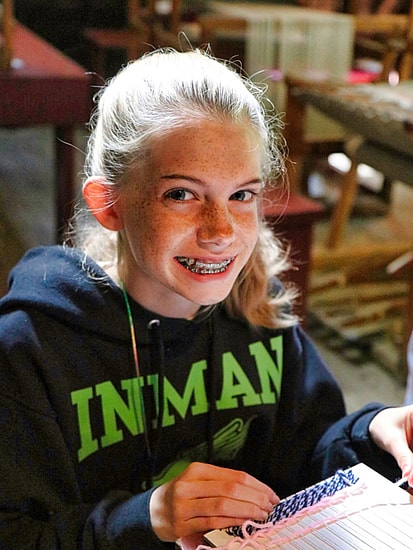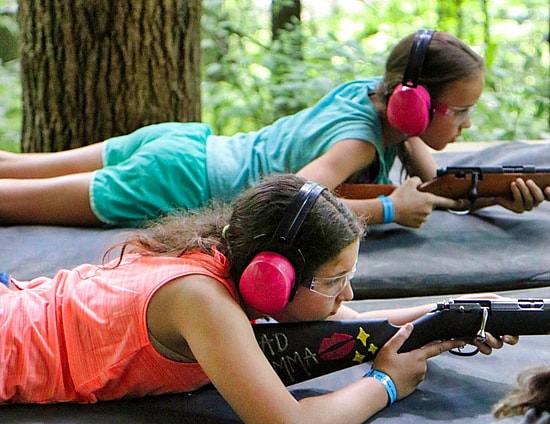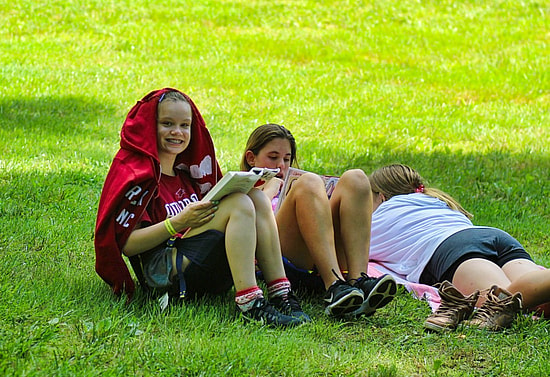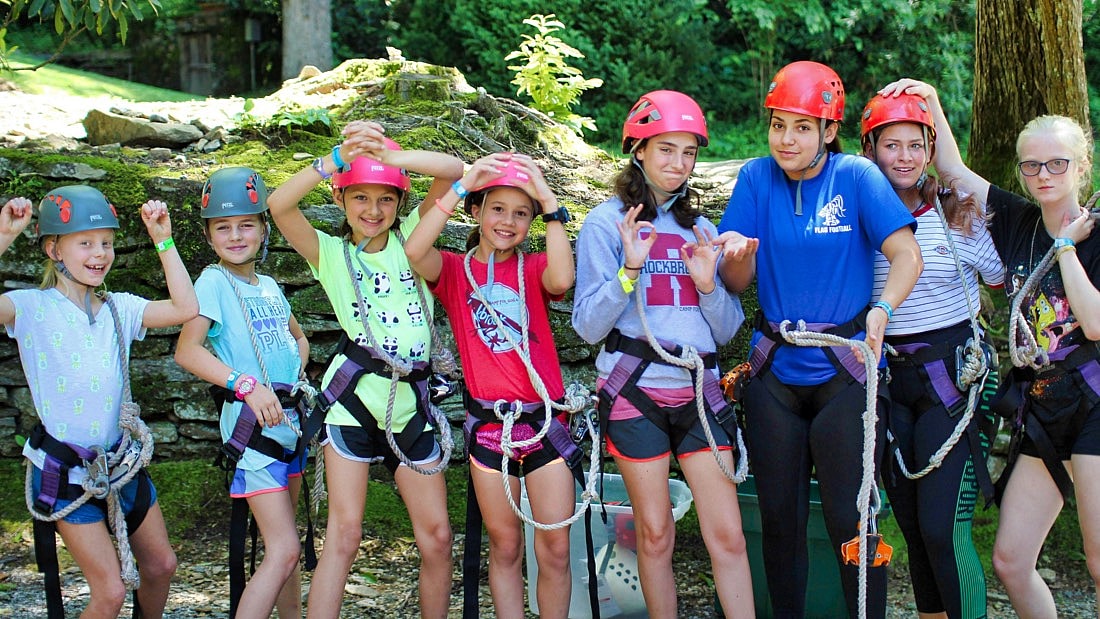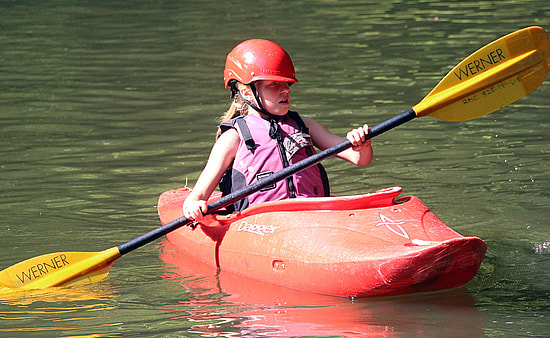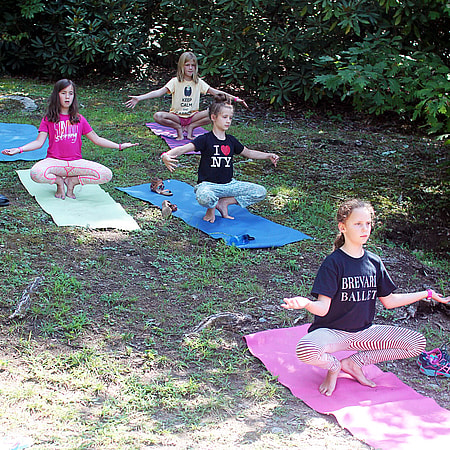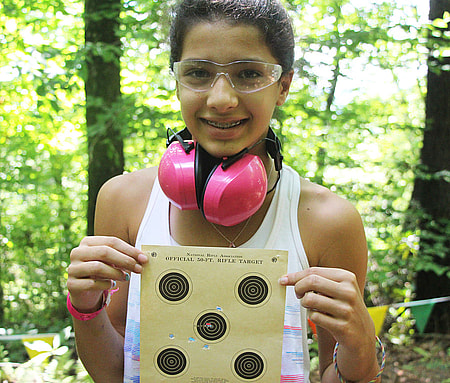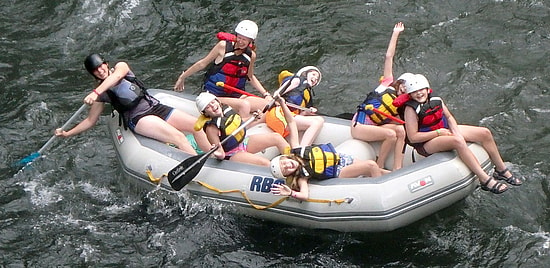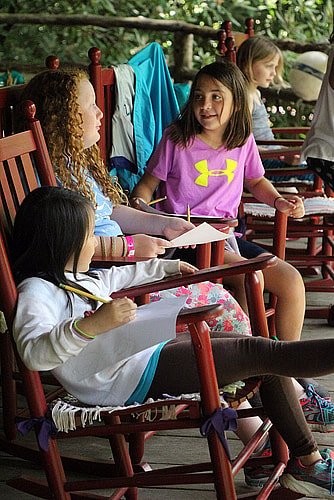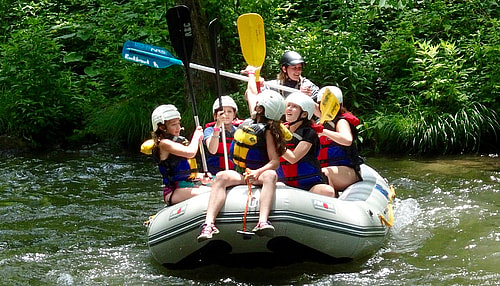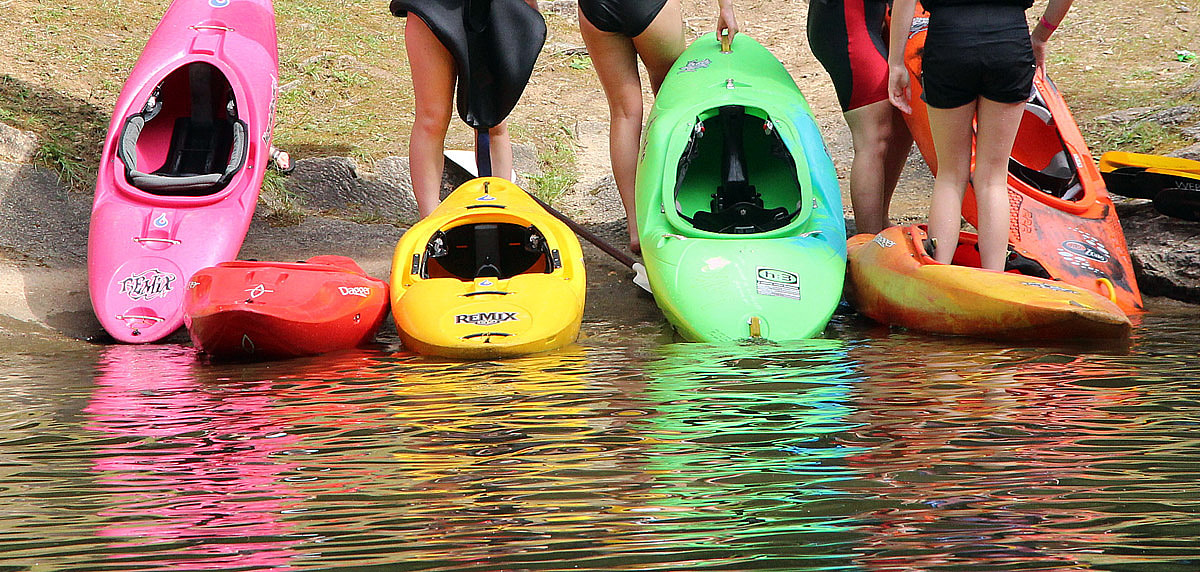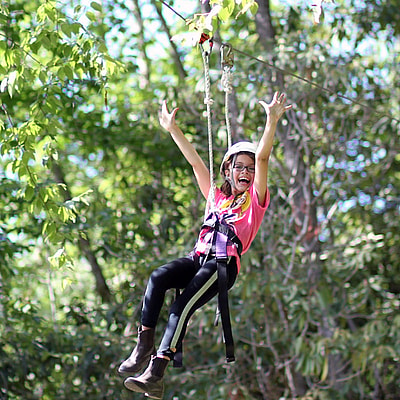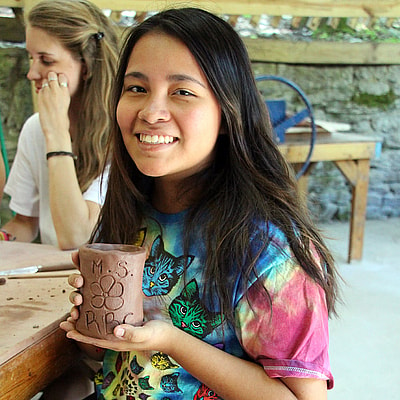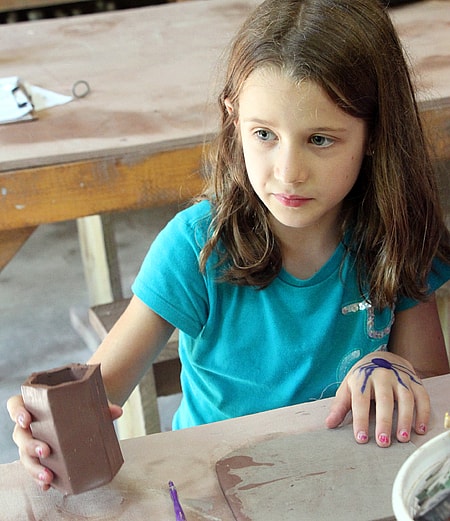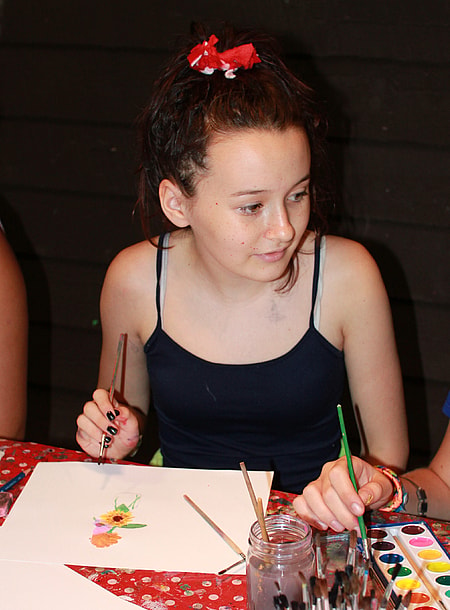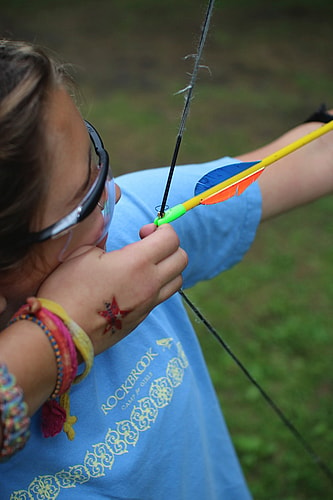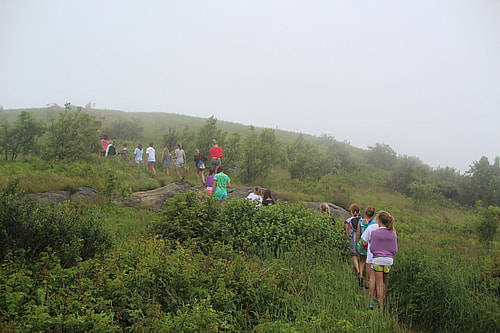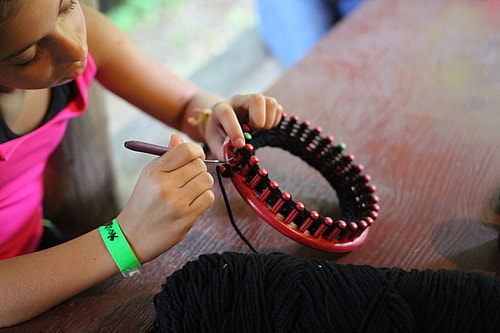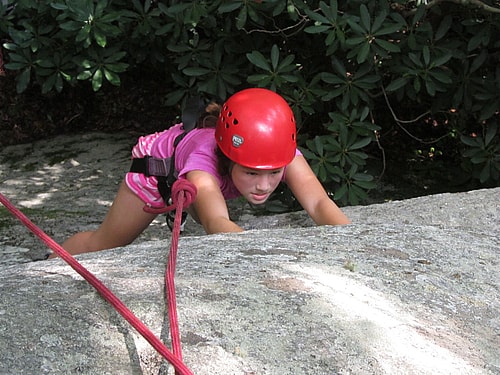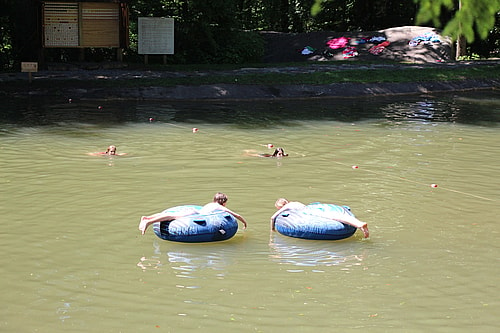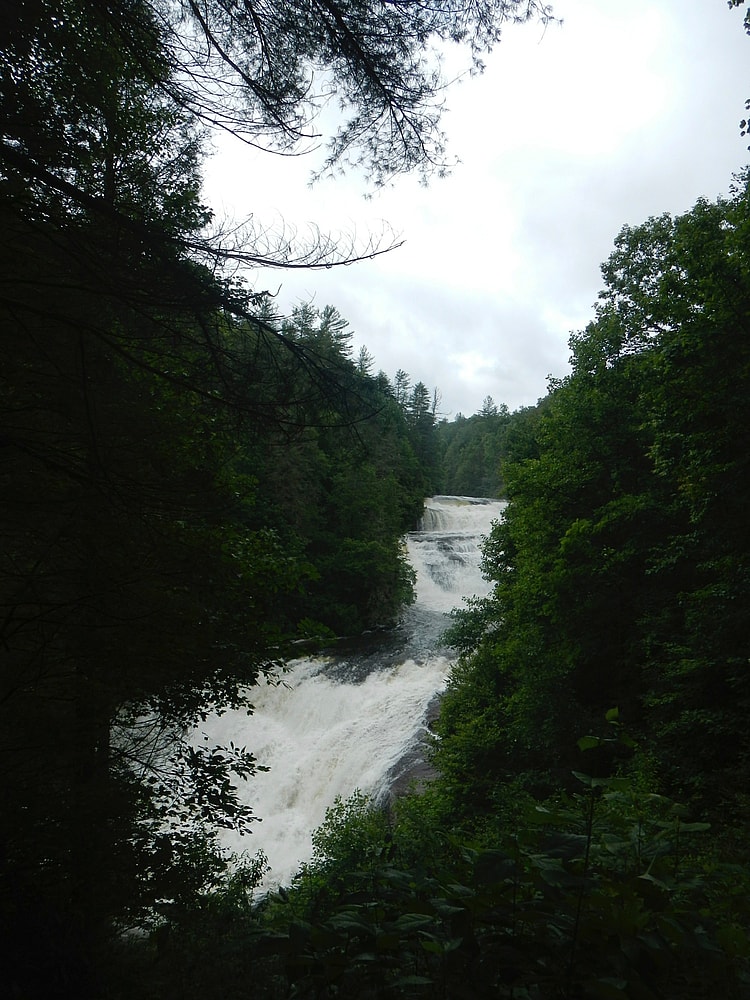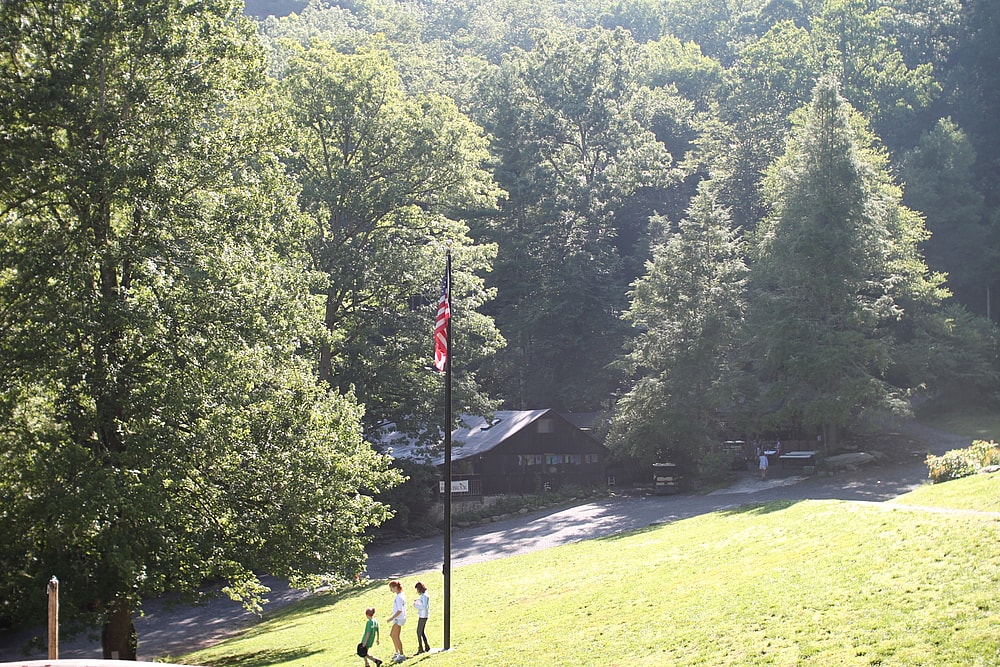Today we saw more evidence of just how quickly your girls have taken to life at camp. It’s just the first day of activities, and everywhere we look, both the new and returning campers are having a great time with each other. At all the craft activities, hands were busily creating, weaving, painting, pressing clay, trying new friendship bracelets, and decorating all sorts of things. There were balls bouncing on the tennis courts, in the gym for basketball, and out on the gaga ball court. Girls climbed all three sides of the Alpine Tower while others took wild rides through the trees on our zipline course. Girls stretched and posed in the yoga class and made up improvised scenes in the drama activity. Dozens of arrows and .22 caliber ammunition were (respectively!) shot at archery and riflery targets. The sound of the diving board thumping and water splashing all day meant the lake saw lots of action too. Camp life was buzzing with action.
Add to that an absolutely perfect day of weather— brilliant blue skies and sunshine all day, no rain, low humidity and a high temperature barely above 80 degrees —and being here in the mountains was wonderful. Did you know that you can always check the weather conditions here at camp by visiting our weather station on Weather Underground? On our station page you can find real-time and historical data, as well as weather forecasts for our area.
Today was also the first day out on the water for our kayak camp girls and their instructors. The girls practiced their “wet exit” maneuvers (escaping from a kayak after it turns upside down) in the lake yesterday as a refresher, and spent time double checking their boats before loading a van and trailer with other paddling equipment, camping gear and food for their first two-day river trip. These girls already knew each other from camp last summer and had already spent a good amount of time paddling together, so right away they were excited to be set for the next week of river trips. Their plan is to paddle a different river everyday, so we’ll keep you posted about their progress.
Describing all the action, the activity that enlivens camp, like this might give you the wrong impression. The busyness is not stressful or burdensome. Just the opposite; there’s a carefree element to it. The girls are relaxing as they play. They’re loosening up while getting to know each other. They’re not rushed from one thing to another. Our daily schedule builds in free time and snack breaks (our famous muffin break in the morning, for example), and has an easy pace. We eat great food, get plenty of rest, and spend the majority of our day outside. There’s time for conversation all day long, time for silliness, dressing up, and a good laugh with friends. A camper told me today that she loves camp because “it’s so chill.” I think she’s noticing and appreciating the relaxed pace of life at camp, especially in contrast to life at school.
I suspect that’s true for lots of girls at Rockbrook. However ironic, they love the relaxed feeling along with the variety of action built into the rhythms of camp life. What a great way to recharge and enjoy yourself. Your girls are already thanking you.


